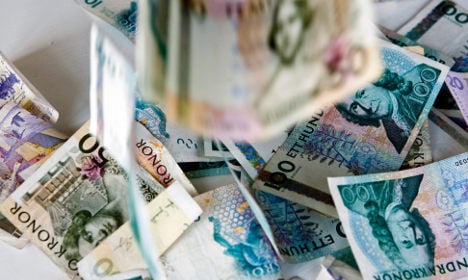A survey in March reported that despite the economy growth spurt, negative interest, record stock exchange trade, and political instability had put a damper on Swedes' willingness to spend the extra cash in their purse and that most consumers were instead choosing to save their money.
But analysts said on Thursday that they believe this is about to change.
“We think that households will continue to increase their consumption," Jesper Hansson, analyst at the Swedish government's own forecast authority, Konjunkturinstitutet (KI) told news agency TT on Thursday. "And property investments are also rapidly increasing,” he added.
The weaker-than-normal Swedish krona has strengthened the export industry, which has also benefited from a stronger European market.
“We can clearly see that exports are growing more rapidly and the development in Europe is a very important factor, it's a large export market for us,” said Hansson.
GUIDE: What a weak krona means for you
Only weeks ago, the Riksbank (the Swedish central bank) cut its key interest rate, the repo, to record negative levels to prevent inflation from stalling after the krona showed signs of growing stronger. Riksbank chiefs said that its recent appreciation risked breaking a positive trend of rising inflation.
“The Executive Board of the Riksbank has decided to make monetary policy even more expansionary by cutting the repo rate by 0.15 percentage points to -0.25 percent and buying government bonds for 30 billion kronor, to support the upturn in inflation,” said the bank in a statement at the time.
And some analysts predicted on Thursday that the Riksbank would slash the repo even further in the spring.
“We think that the Riksbank will continue to lower interest rates in April. It is very focused on establishing confidence in the inflation goal,” Annika Winsth, chief economist at Swedish banking giant Nordea, told TT.
Meanwhile, KI predicts that GDP will grow by 3.1 percent in 2015. This compares to OECD figures estimating a 2.9 percent growth and the Riksbank's and the Swedish government's own predictions of 2.4 and 2.7 percent, respectively.



 Please whitelist us to continue reading.
Please whitelist us to continue reading.
Member comments